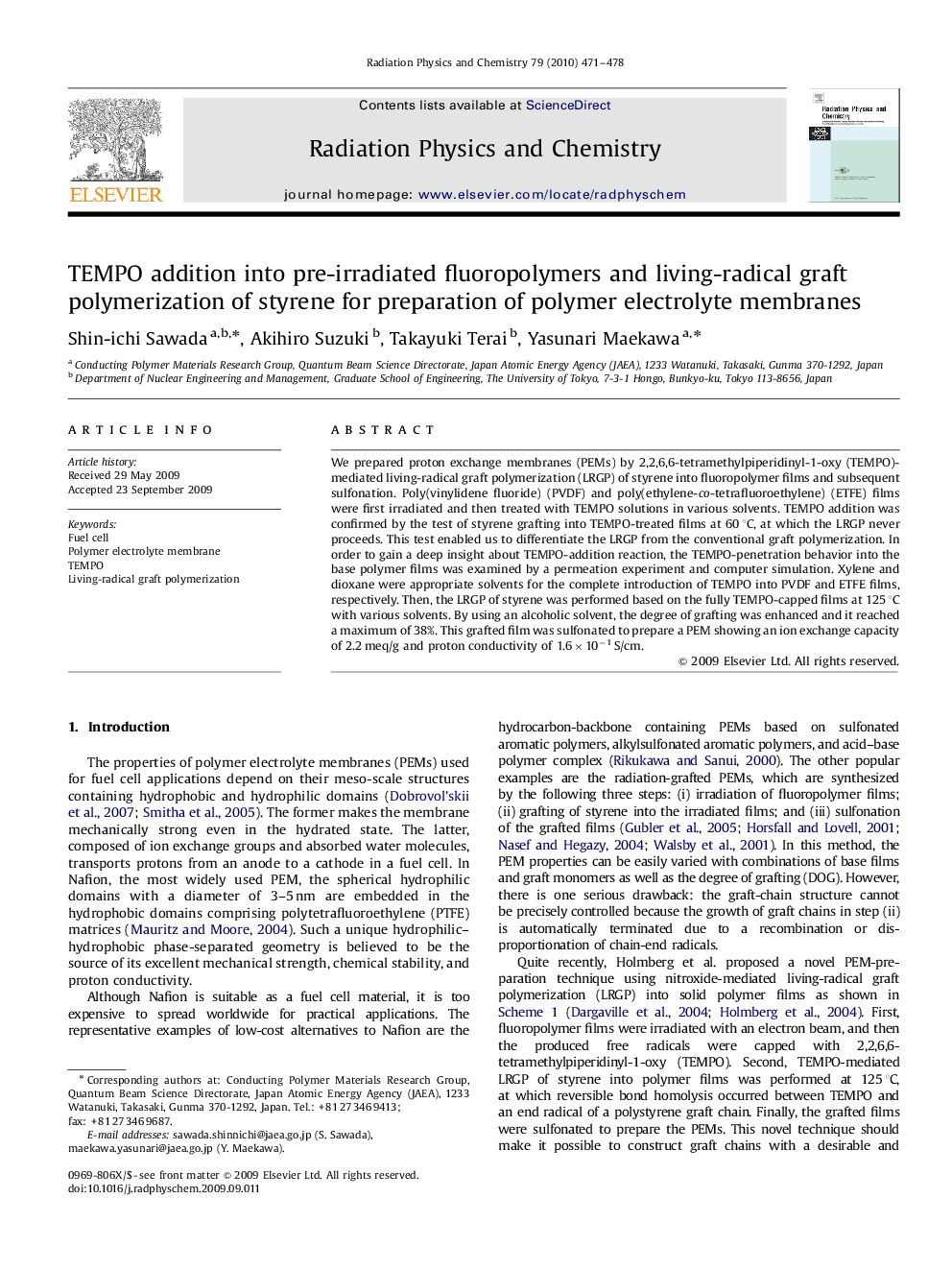| Article ID | Journal | Published Year | Pages | File Type |
|---|---|---|---|---|
| 1886596 | Radiation Physics and Chemistry | 2010 | 8 Pages |
We prepared proton exchange membranes (PEMs) by 2,2,6,6-tetramethylpiperidinyl-1-oxy (TEMPO)-mediated living-radical graft polymerization (LRGP) of styrene into fluoropolymer films and subsequent sulfonation. Poly(vinylidene fluoride) (PVDF) and poly(ethylene-co-tetrafluoroethylene) (ETFE) films were first irradiated and then treated with TEMPO solutions in various solvents. TEMPO addition was confirmed by the test of styrene grafting into TEMPO-treated films at 60 °C, at which the LRGP never proceeds. This test enabled us to differentiate the LRGP from the conventional graft polymerization. In order to gain a deep insight about TEMPO-addition reaction, the TEMPO-penetration behavior into the base polymer films was examined by a permeation experiment and computer simulation. Xylene and dioxane were appropriate solvents for the complete introduction of TEMPO into PVDF and ETFE films, respectively. Then, the LRGP of styrene was performed based on the fully TEMPO-capped films at 125 °C with various solvents. By using an alcoholic solvent, the degree of grafting was enhanced and it reached a maximum of 38%. This grafted film was sulfonated to prepare a PEM showing an ion exchange capacity of 2.2 meq/g and proton conductivity of 1.6×10−1 S/cm.
